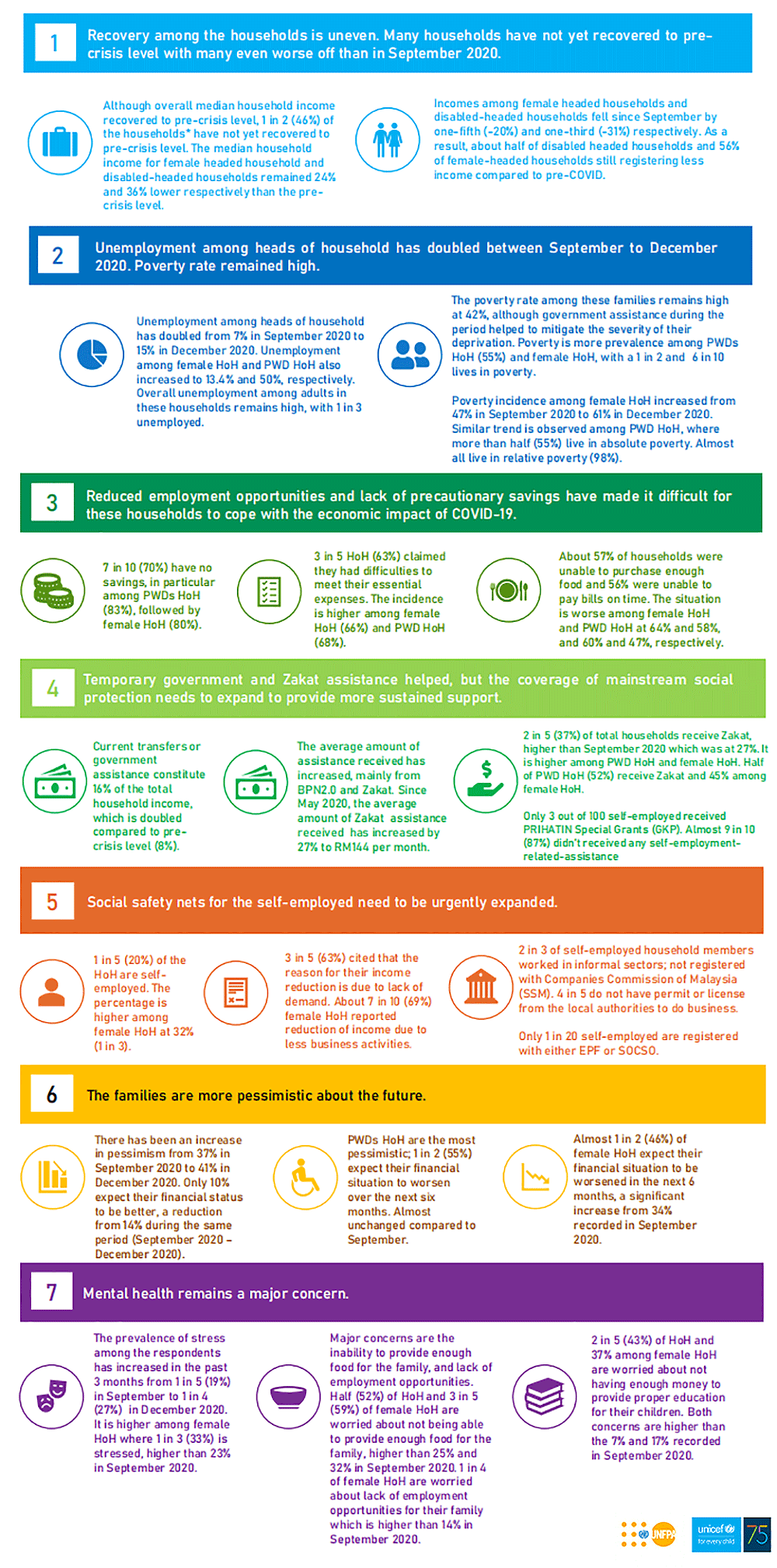A report by the United Nations children's fund (Unicef) has revealed that unemployment rates among low-income urban households doubled in the Klang Valley from September to December last year.
Based on a survey of 500 households in Kuala Lumpur’s low-cost flats, it was found that unemployment had increased from 7 percent in September to 15 percent in December.
One in three adults in these households was said to be without a job.
The report, called 'Families On The Edge', said that income levels among female-headed households and households headed by persons with disabilities (PWD) are now 24 percent and 36 percent lower respectively than at the end of 2019.
"The poverty rate among the study sample stood at 42 percent in December, with higher rates among PWD-headed households (55 percent), and female-headed households (61 percent)," it revealed.
Unicef’s representative in Malaysia, Rashed Mustafa Sarwar, said that “while some families have started to recover, others have continued to deteriorate and, at the outset of the second movement control order, were close to breaking point”.
"We need to reimagine social protection for the most vulnerable in Malaysia, including through an expansion of coverage of income support for low-income families, and provision of targeted livelihood support, particularly for the self-employed," said Rashed.
He added that Unicef had extended its support to the government and looked forward to working together to strengthen policies and programmes for families in need.
The report also showed that 63 percent of the households were experiencing difficulties in meeting their basic needs and purchasing daily essentials, despite government and zakat financial aid.
Najib Assifi, the United Nations Populations Fund representative in Malaysia, also said that the social dynamics of these families on the edge are changing as they do their best to cope with the worsening economic situation.
"With increased pessimism further exacerbating mental health issues, it begins to shape unhealthy living environments psychologically and sometimes physically.
"None are more affected than children, those with chronic illnesses, the disabled, and of course those who care for them," he said.
- Mkini





No comments:
Post a Comment
Note: Only a member of this blog may post a comment.